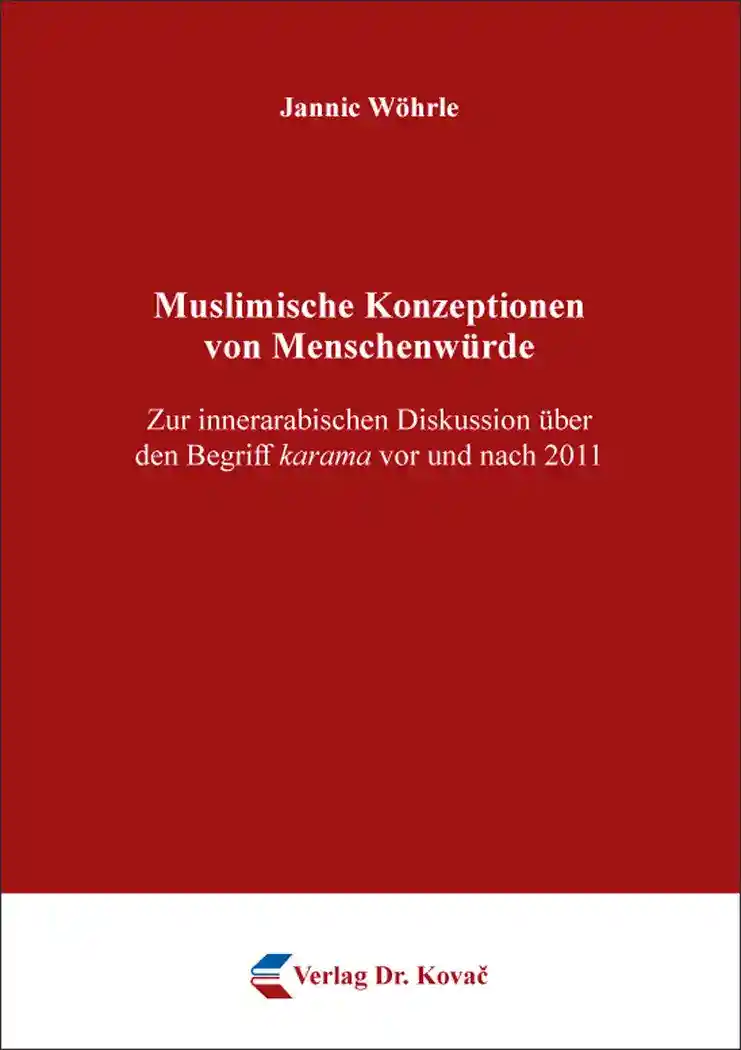Jannic WöhrleMuslimische Konzeptionen von Menschenwürde
Zur innerarabischen Diskussion über den Begriff karama vor und nach 2011
ﻧﻮﺮ ﺍﻠﺤﻜﻤﺔ Nur al-hikma
Licht der Weisheit. Interdisziplinäre Schriftenreihe zur Islamwissenschaft, volume 17
Hamburg 2022, 366 pages
ISBN 978-3-339-13098-3 (print)
ISBN 978-3-339-13099-0 (eBook)
About this book deutschenglish
The revolutions that erupted in several Arab countries in 2011 are also known as “revolutions of dignity” (ṯaurāt al-karāma). Time to ask how “dignity” is manifested in muslim perspectives. What are the conceptions associated with this perception? Which role did the term karāma play in the 2011 Syrian revolution? For what reason is the Saudi Shia preacher Nimr an-Nimr (who was executed in 2016) called the “Sheikh of dignity”? What are the meanings and functions of the concept of human dignity in Islamic bioethics? This book holds answers to those questions and more.
The focus is on the term karāmat al-insān, a 20th-century neologism that can be translated as “human dignity”. But what is the story behind it? As a technical term in Islamic religious studies, karāma (sg.) designates something similar to the Greek word “charisma”, a noble quality or gift bestowed by God. Karāmāt (pl.), according to an original meaning, are the “marvels of the saints” (karāmāt alauliyāʾ). They are supposed to be an expression of the highest levels of perfection that the human soul can attain.
Karāmat al-insān has long been emphasized without any reference to inalienable rights. Against this background, the author examines the question if the articulation of the term karāma in the 2011 revolutions points to a historical process that establishes new conceptions of human dignity. The essentially “humanist” revolutions would then be a culmination of this process, but not its ending.
Drawing on a wide range of sources, the author parses differences in the inner-Arabic discussion of karāma before and after 2011. This results in the identification of a common cross-cultural core of words that describe the universal concept of dignity in different languages and cultures. Every language creates its own world, with unique concepts of how things are. This calls on us to stand up for the practical applicability of the concept of dignity and its universal validity.
